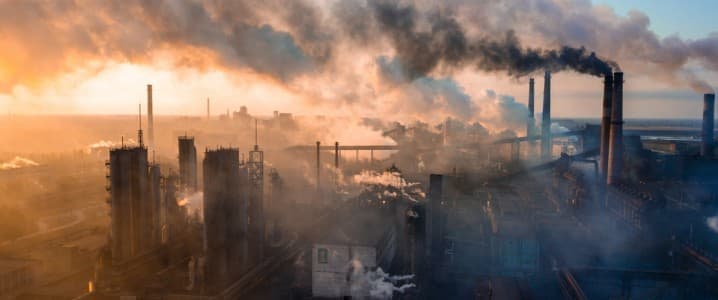The Russian invasion of Ukraine is upending global energy markets and short-term efforts to reduce emissions. The ongoing frantic search for non-Russian energy supply, especially in Europe, is set to keep global carbon emissions elevated in the short term as coal use grows everywhere. At the same time, Russia’s heavy industries, such as steelmaking and metals production, are now unable to implement imported emission-reduction technologies as the West is continuously ramping up sanctions against Moscow over Putin’s invasion of Ukraine.
Russia, the world’s fourth-largest carbon dioxide emitter, pledged last October a net-zero target by 2060. Russia’s primary method of reaching net-zero would be doubling in the level of negative emissions from the land use, land-use change, and forestry (LULUCF) sector between 2030 and 2050, says Climate Action Tracker, which rated Russian emission-reduction efforts as “critically insufficient” in early February this year.
That was less than three weeks before Russia invaded Ukraine and changed the global energy markets and trade flows forever.
Europe has realized it cannot remain dependent on Russia for a large portion of its energy supply and is looking at all available alternatives to replace imports of Russian oil, natural gas, and coal. While the European Union is doubling down on renewable energy to ultimately replace fossil fuels from Russia in the longer term, short-term solutions to the energy crisis include keeping all alternatives on the table, including a slowdown in the coal phase-out in some countries.
Related: Germany Drops Opposition To Russian Oil Embargo
Greece, for example, plans to step up efforts to explore for natural gas in an attempt to reduce its 40% reliance on Russian gas, and will double its production of coal over the next two years in order to reduce the use of Russian natural gas.
The war in Ukraine put Europe on an irreversible path to wean itself off Russian fossil fuel dependence, but until renewable energy becomes a viable widespread alternative to those fuels, the EU will look to procure fossil fuels from outside Russia, including by significantly ramping up imports of liquefied natural gas (LNG).
Ideally, Europe would like to not be dependent on any fossil fuels – regardless of the source – but in the short term, it doesn’t have too many choices but to increase the use of non-Russian oil, gas, and coal.
Elsewhere, China and India – the world’s largest and third-largest carbon polluters, respectively – are prioritizing energy security to short-term carbon-reduction efforts and ramping up the use of coal, faced with volatile and record-high natural gas prices.
In Russia, company efforts to decarbonize have stalled. Financial and technological hurdles due to the sanctions and the exodus of Western companies, including those with expertise to help decarbonize industries, is set to slow down Russia’s carbon-reduction commitments, local analysts told business daily Kommersant last month.
Russian firms are likely to freeze new investments in decarbonization and cut spending on environmental programs, Alexey Kalachev, an analyst at Finam, told Kommersant.
In addition, with Western companies looking for alternatives for Russian goods, Russia’s industry has little motivation to cut pollution anymore.
“Those incentives to develop renewables, to develop energy efficiency — they will simply disappear,” Tatiana Mitrova, a non-resident fellow at Columbia University’s Center on Global Energy Policy, told Bloomberg last week.
“Why should you invest in energy savings if fuel is so cheap and at the same time you do not have access to energy-efficient technologies any longer?” Mitrova added.
Global energy-related carbon dioxide emissions jumped in 2021 to the highest level ever seen, the International Energy Agency (IEA) said in March, as the world relied mostly on coal to power the post-COVID economic rebound.
Emissions could rise further this year as the world is focused on energy security. Long-term net-zero plans of developed economies, including in the EU and the United States, remain. Yet, in the short term, efforts to ensure power and heating, and to lower energy bills for consumers could result in a setback in the global efforts to reduce greenhouse gas emissions.
By Tsvetana Paraskova for Oilprice.com
More Top Reads From Oilprice.com:
- The Inevitable Decline Of Russia’s Oil Industry
- Is It Fair To Blame Oil Companies For High Prices?
- The Global Energy Shortage Could Be A Boon For Tidal Power

















